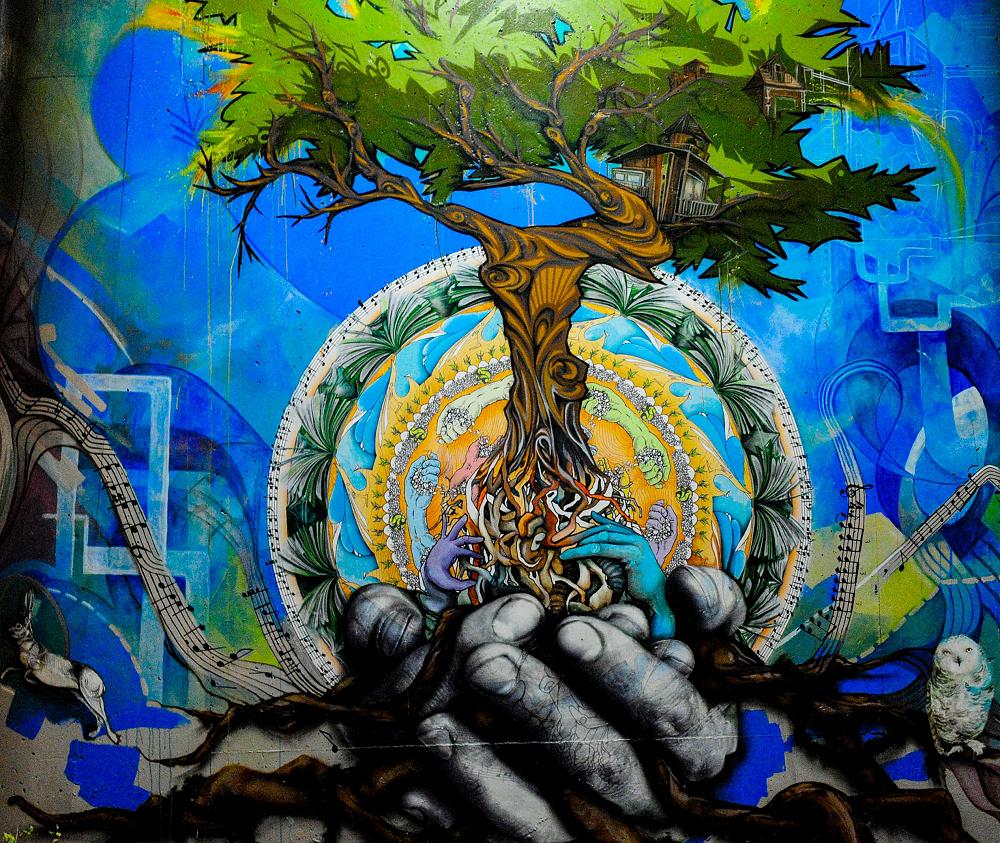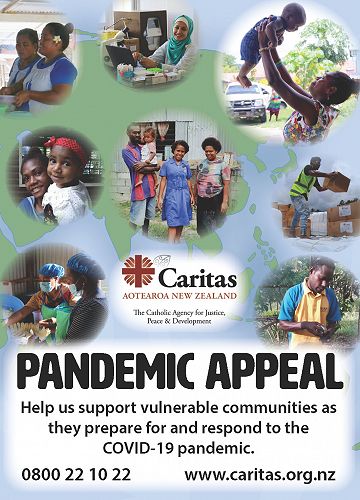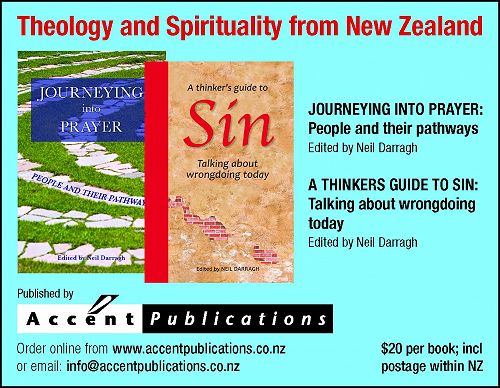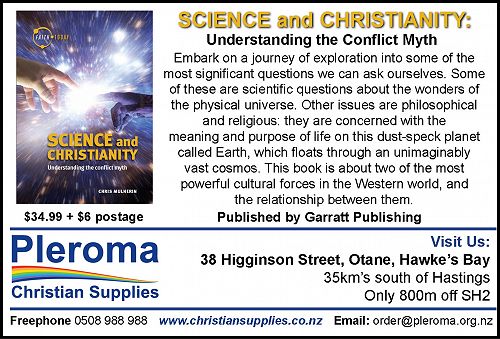
ARTICLE: Developing Our Conscience
Neil Darragh discusses the need to develop our conscience in order to make informed personal and collective moral decisions.
I have known a few people who seemed to be motivated by self-interest with little sense of moral responsibility towards others. I’ve only once met someone who I’m pretty sure had no conscience. This was a man coming to the end of a prison sentence for violent sexual offences. He told me that once he had finished his sentence he would have “paid his debt to society”, that his slate would be clean and that he fully intended to offend again. This time, though, he would have to make sure that he didn’t get caught. He had no concern for past or future victims of his violence and no sense of any internal moral obligation. Meeting someone with no conscience is a scary experience.
The opposite of this is the person who suffers from scruples. Many of what the rest of us would consider normal behaviours, or well within the range of excusable human frailty, seem to the scrupulous person to be sinful and punishable by an all-seeing Judge or relentless condemnatory force. Here is an overactive and deranged conscience that brands many normal human actions or mild indiscretions as bad and deserving punishment.
Our Moral Responsibility
For most of us that niggling guilt for something we have done wrong or an internal call to something good we should do is probably our most immediate experience of our own conscience operating. One key to understanding it is that it is not just some objective “insight” or “knowledge” but it includes a sense of moral responsibility. It is the beginning of being a human being who tries to do right, to be good, or to act fairly towards others even if it entails some cost to ourself. It is different then from self-will or self-interest.
Developing Our Conscience
A second key to understanding conscience is that we develop it throughout our lives. Conscience is an internal personal process which becomes, hopefully, more astute and more accurate as it is formed by our own experience, by moral reasoning (our deliberate investigations into the rights and wrongs of things), by our families and friends, by our communities and by mass media. In this process we would hope to develop what moral theologians call an “informed” conscience.
Simply put, our conscience is our judgement of the moral quality of our actions.
Unfortunately, our conscience can also be wrong. It can be “deformed”. The 2019 killing and wounding of people in the Al Noor Mosque and Linwood Islamic Centre in Christchurch is a recent horrible example of a conscience gone wrong.
In Christian tradition, understandings of “conscience” have ranged from the “voice of God” (and therefore absolutely to be obeyed above all other voices) to more down-to-earth (and much less absolute) applications in the here and now of Church teachings or civic duties. Yet the force of conscience has always been a central theme in Christian morality. It cannot be ignored by Christians if only because of the example of Jesus Christ’s conscientious objection to both the imperial and religious authorities of his time.
In modern times, many Christians, and Catholics in particular, can find an anchor point for understanding conscience in the second Vatican Council’s Pastoral Constitution on the Church in the Modern World: Gaudium et Spes:
“Deep within their consciences men and women discover a law which they have not laid upon themselves and which they must obey. Its voice, ever calling them to love and to do what is good and to avoid evil, tells them inwardly at the right moment: do this, shun that. For they have in their hearts a law inscribed by God. Their dignity rests in observing this law, and by it they will be judged. Their conscience is people’s most secret core, and their sanctuary” (GS: par 16).
One of the implications of all this is the need to develop and “form” our consciences so that we are increasingly sensitive to living out this interior sense of moral responsibility. We cannot do this on our own. In a complex modern world we rely on the people we trust, the cultures we identify with, the wealth of knowledge and experience in the communities we belong to and the Church and civic leadership that has gained our respect.
In the matter of leadership, I was impressed by moral theologian Klaus Demmer when asked recently whether bishops should take public stances on moral issues. Demmer replied that the primary task of Church leaders is to remind all Christians that they each have a conscience to be followed. Their second task is to remind Christians that, realising they have to follow their consciences, they need to form their consciences by becoming better people, more competent at living and doing the truth.
First Crunch Point
Most of the time, most of us can happily follow our consciences in our daily lives with some degree of excitement, without too much contradiction and without high levels of stress. There are at least two “crunch points” though, where conscience often does go under stress. One of these crunch points occurs when there is a contradiction between my conscience and the teachings of my Church or the laws of my country. On this matter at least there is concerted agreement among moral theologians and Church authorities: the first priority is to follow our conscience. Yet we need to be sure that we do this with an “informed” conscience and we do it with love and respect for others.
Second Crunch Point
A second crunch point is the issue of freedom of conscience in both Church and society. Respect for freedom of conscience is a basic requirement for Church authorities. It derives from the Christian belief in the dignity of every human person and the belief that Christian faith cannot be forced. Historically, Church authorities have not always done this especially during the period of “Christendom” when Church and state were closely aligned. Enthusiastic Christian missionaries and over-zealous “defenders of the faith” have sometimes forgotten it. Yet it still remains a fundamental principle of Christian life and a binding principle on Church leadership.
Freedom of Conscience in Society
Respect for freedom of conscience is also a basic requirement of democratic societies. Imperial and tyrannical societies are characterised by their disregard for the consciences of their subjects. In democratic societies, the right to freedom of conscience protects minority groups as well as individuals from being defeated by majority decisions. “Everyone has the right to freedom of thought, conscience and religion” is part of the UN Declaration of Human Rights (art 18). This means that legislators and courts have to devise protocols for “conscientious accommodation” which allows laws to operate with flexibility and exceptions for genuine conscientious objection to them.
Collective Conscience
Most discussion about conscience relates to the conscience of the individual person. It is only a small expansion of the discussion, however, to consider a “collective conscience”. Christian communities function well when they develop such a collective conscience within the Church so that there is a common vision and common mission.
Christians are also citizens and can contribute to a common moral sense, a collective conscience, of what their nation is about and what it hopes to achieve. The COVID-19 pandemic has brought home to us this need to act with a collective conscience. We have been reminded of the importance of cooperation in keeping ourselves and others safe and the value of kindness. And, now in an election year, we hope we have enough of a collective conscience to choose members of parliament who can bring together a consensus for the well-being of everyone and prevent the divisiveness of single issue voting or voting purely for self-benefit.
Neil Darragh is a priest, theologian and author in the Auckland Diocese.
Tui Motu Magazine. Issue 248 May 2020
Gallery




